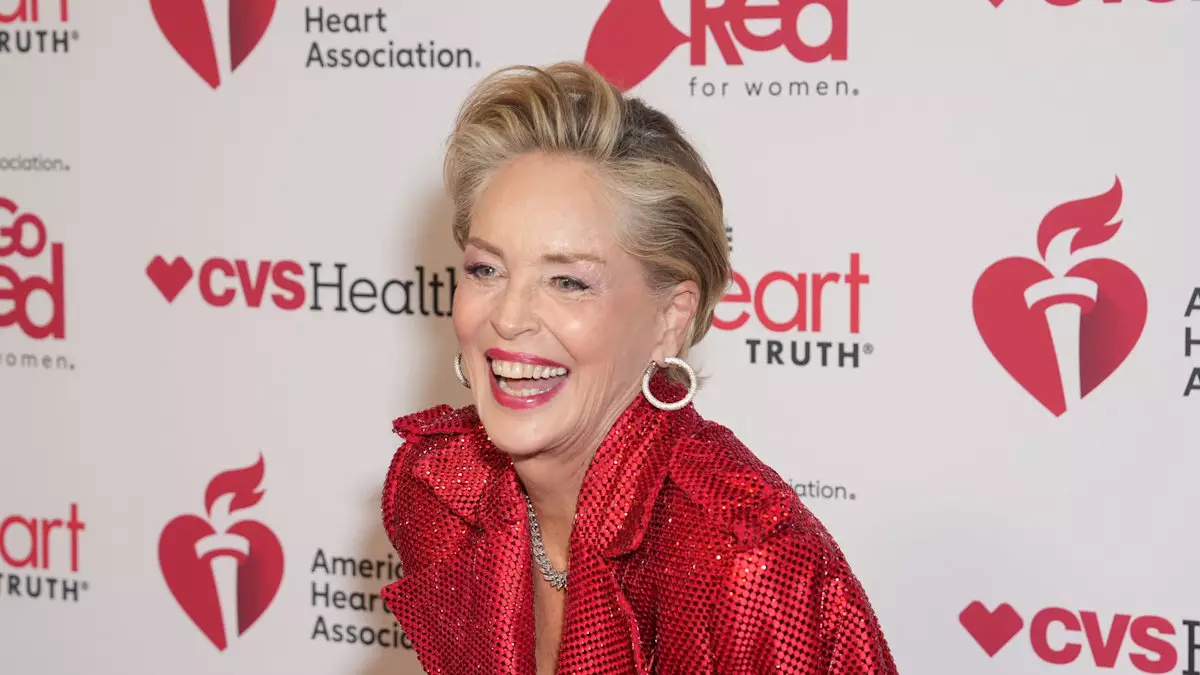Sharon Stone’s journey through personal health struggles and her relentless advocacy for women’s health issues exemplifies an extraordinary blend of vulnerability and strength. Since suffering a stroke in 2001, the veteran actress has transformed her traumatic experience into a powerful narrative, one that resonates not only within the entertainment industry but also with countless women confronting their own health challenges.
In the early 2000s, Stone faced what many would consider an insurmountable obstacle; a major health crisis that placed her life in jeopardy. The stroke, a life-altering event, required her to reassess her priorities and retake a more significant role in advocating for health awareness. For seven years, she fought through recovery, an experience that not only strained her professionally but also pushed her to the brink of her personal resilience. During this time, she faced the devastating reality of being out of the spotlight. “My real first step of recovery was about seven years,” she stated, underscoring the lengthy process of regaining her footing in Hollywood.
This journey is not just about personal recovery but serves as a poignant reminder of the often-overlooked issues women face in the realm of healthcare. After going through her ordeal, Stone became more attuned to the systemic neglect of women-specific health concerns. At the American Heart Association’s recent Go Red for Women event, she brought this issue to light once again. The actress’s message was clear: investing in women’s healthcare is not just a personal crusade; it’s a societal necessity.
Sharon Stone’s advocacy is grounded in her lived experiences and the harsh realities of women’s health that she now emphasizes. During the event, she poignantly noted, “We understand that our gynecological health was never addressed until 2002.” Her remarks resonate deeply, exposing a historical oversight in medical research where women’s health has often been sidelined in favor of male-centric studies. Stone argues that this neglect has tangible consequences, such as the realization that hormonal imbalances can lead to serious health complications, including strokes.
She boldly states, “We don’t want to be one of those countries who end up with a bunch of men who don’t have women to be with.” This statement underscores the broader implications of neglecting women’s health—not just for individual women, but for society as a whole. The cascading effects of inadequate healthcare for women ultimately affect familial structures and community well-being.
What sets Stone apart from many advocates is not just her celebrity status, but her willingness to share the raw and intimate aspects of her health struggles. In a candid reflection on her brush with death, she recounted, “I bled into my brain for nine days.” Such vivid descriptions serve to humanize her struggle and make the issues surrounding women’s health critically relevant. By sharing the drastic alterations to her basic functions, such as her impaired sight and cognition, she draws attention to the unpredictable nature of health crises and their lingering effects.
Moreover, her mention of a “death experience” illustrates a transformative perspective on life and health. In telling others about her journey, she provides both a cautionary tale and an inspiring message of hope—a reminder that resilience is possible, even in the face of profound adversity.
As Stone continues her work, she invites society to reevaluate its approach to women’s health. Her experiences speak not only to the individual but also to systemic flaws that need addressing. Through her platform, she emphasizes the urgency of advocating for women’s healthcare. “Everything changes, and people don’t really care about that person anymore,” she noted, reflecting on the loss of momentum in her career and life. This thought is significant: it brings to light how society often dismisses those who no longer fit into the ‘norm’ or who have been out of the limelight.
In summation, Sharon Stone’s advocacy is a clarion call for prioritizing women’s health issues, one steeped in real-life experience and evolving personal advocacy. Her journey serves as both a reminder of the fragility of life and a powerful encouragement for others to actively pursue health accountability and change. Stone’s commitment not only enriches the dialogue about women’s health but also fortifies her legacy as a profound advocate in an arena that desperately needs voices like hers.

